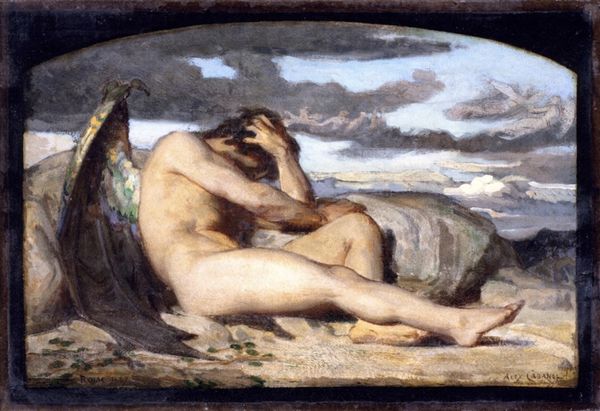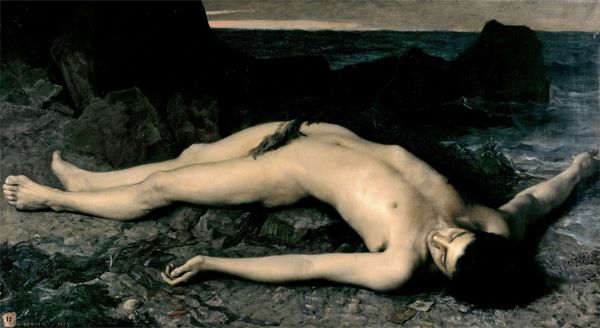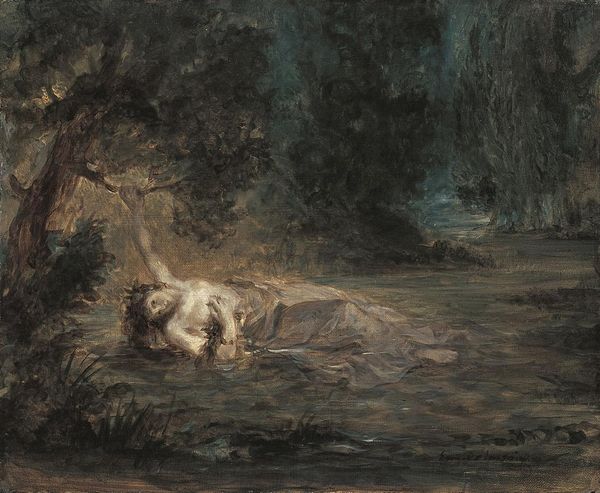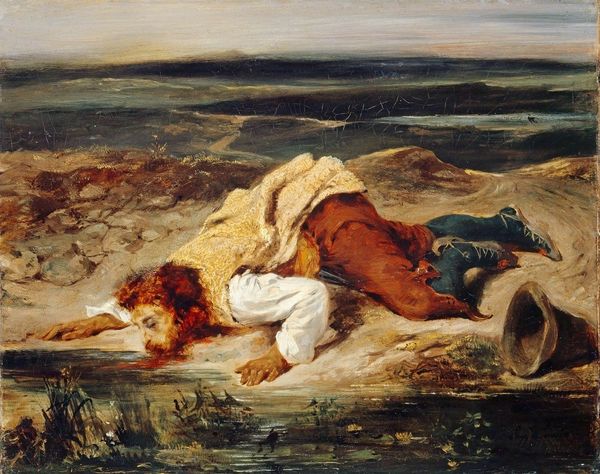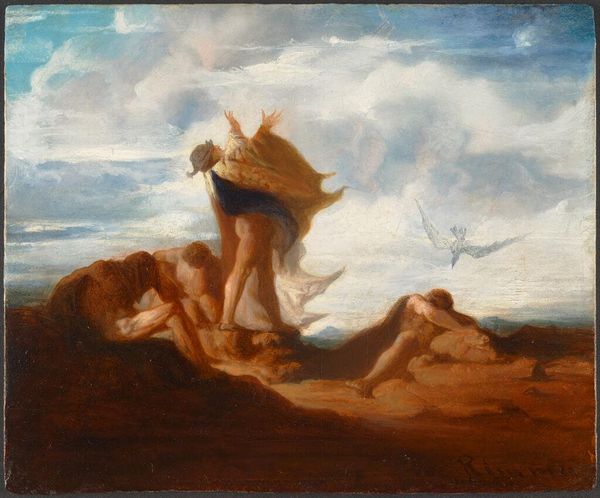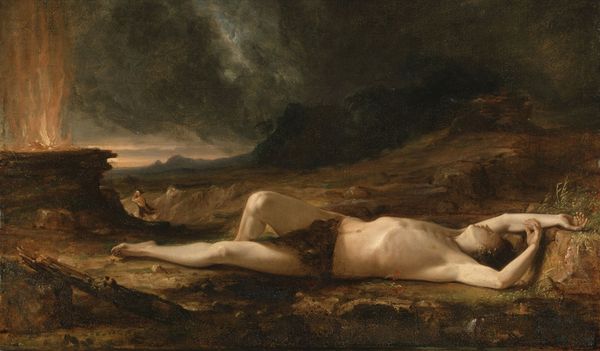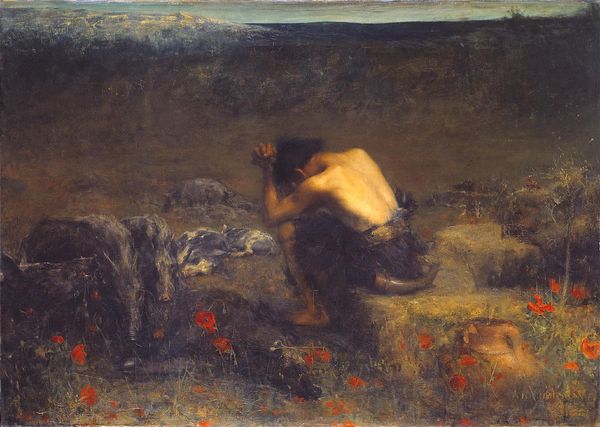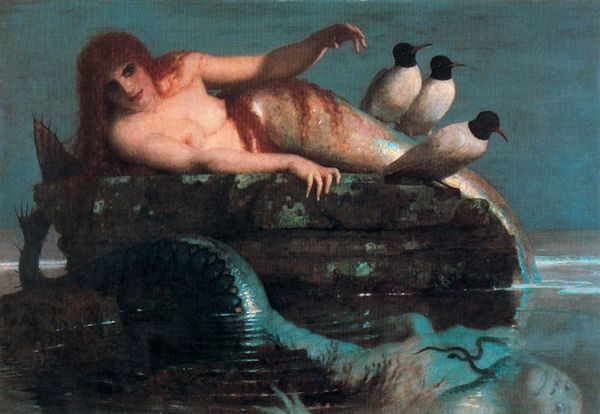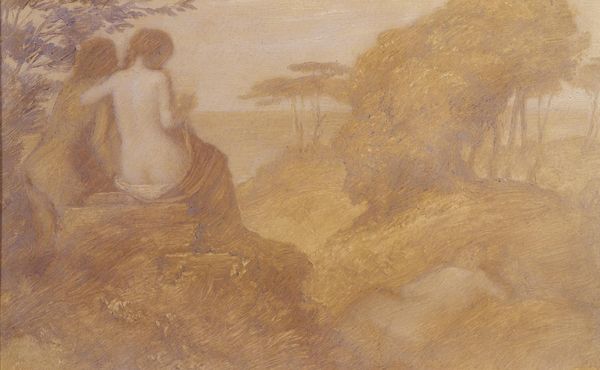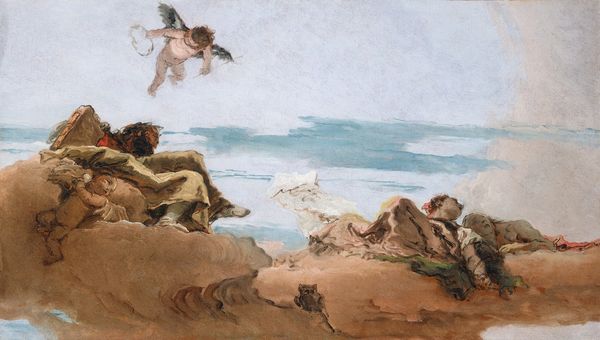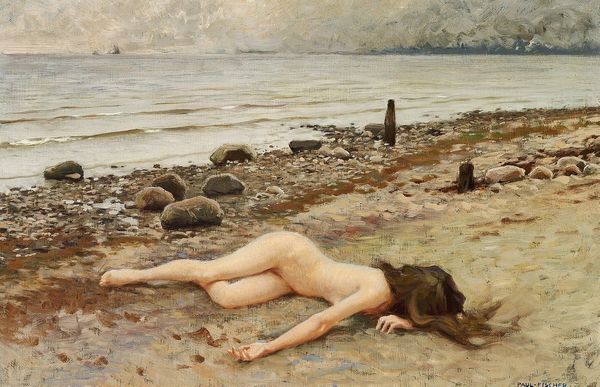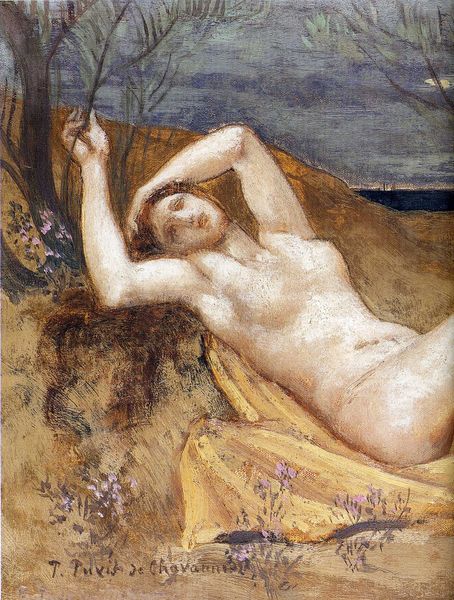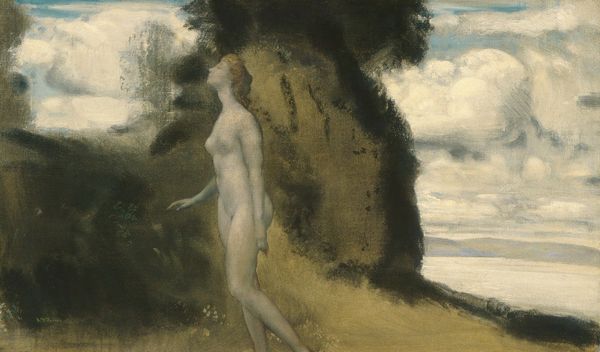
#
abstract expressionism
#
abstract painting
#
possibly oil pastel
#
oil painting
#
fluid art
#
acrylic on canvas
#
underpainting
#
painting painterly
#
watercolor
#
expressionist
Copyright: Public domain
Briton Riviere’s painting, Dead Hector, was created with oils on canvas, a traditional pairing of materials for the time. Look closely, and you’ll see how Riviere used the fluidity of oil paint to create soft gradations of tone, especially in the figure of Hector. The smoothness of the surface almost makes the figure appear like a marble sculpture. But the material also enabled Riviere to add texture, particularly in the rough ground and the fur of the wolves. The labor involved in creating a painting like this, especially at the time, was considerable. The canvas had to be prepared, the paints mixed, and then the image slowly built up through layers of brushstrokes. Riviere was a well-respected member of the Royal Academy. By investing so much labor and skill in the painting of an animal, Riviere elevates these creatures, bringing them into the realm of high art, when at the time they were seen as pets, or working animals. Considering materials, making, and context helps us to understand the full meaning of the artwork.
Comments
No comments
Be the first to comment and join the conversation on the ultimate creative platform.
